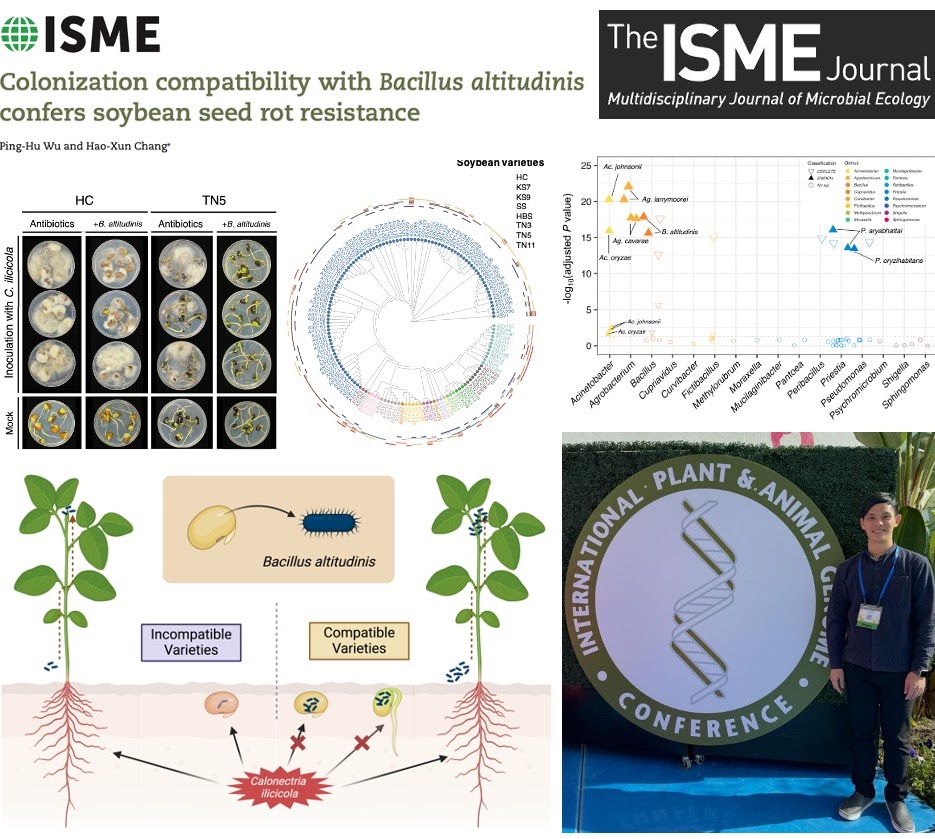Plant immune system forms the molecular basis of disease resistance, but it is known that even plants with the same genotype can exhibit different infection levels or disease responses in different parts or tissues when exposed to pathogens. Although there has been limited research on these discrete disease resistance, recent studies have gradually revealed the importance of microbiome in such resistance. In screening of soybean varieties in Taiwan for resistance to Calonectria ilicicola, Ph.D. student Ping-Hu Wu discovered that some soybean varieties exhibited seed rot resistance, but this resistance did not extend to root rot. Microbiome analysis using full-length 16S rDNA gene sequencing and bacterial isolation identified two ASVs belonging to Bacillus altitudinis, and two B. altitudinis strains were confirmed to antagonize various fungi. It was further discovered that seed rot resistance was only restored in compatible soybean varieties that were colonized by higher densities of B. altitudinis, and qPCR detection showed that B. altitudinis could not persist in the roots, explaining the absence of root rot resistance. This study has been published in The ISME Journal of the International Society for Microbial Ecology (ISME). [5-year impact factor 11.8, 2023 JCI ranking: 2/195 (99.23 percentile) in Ecology; 9/161 (94.72 percentile) in Microbiology]. link
